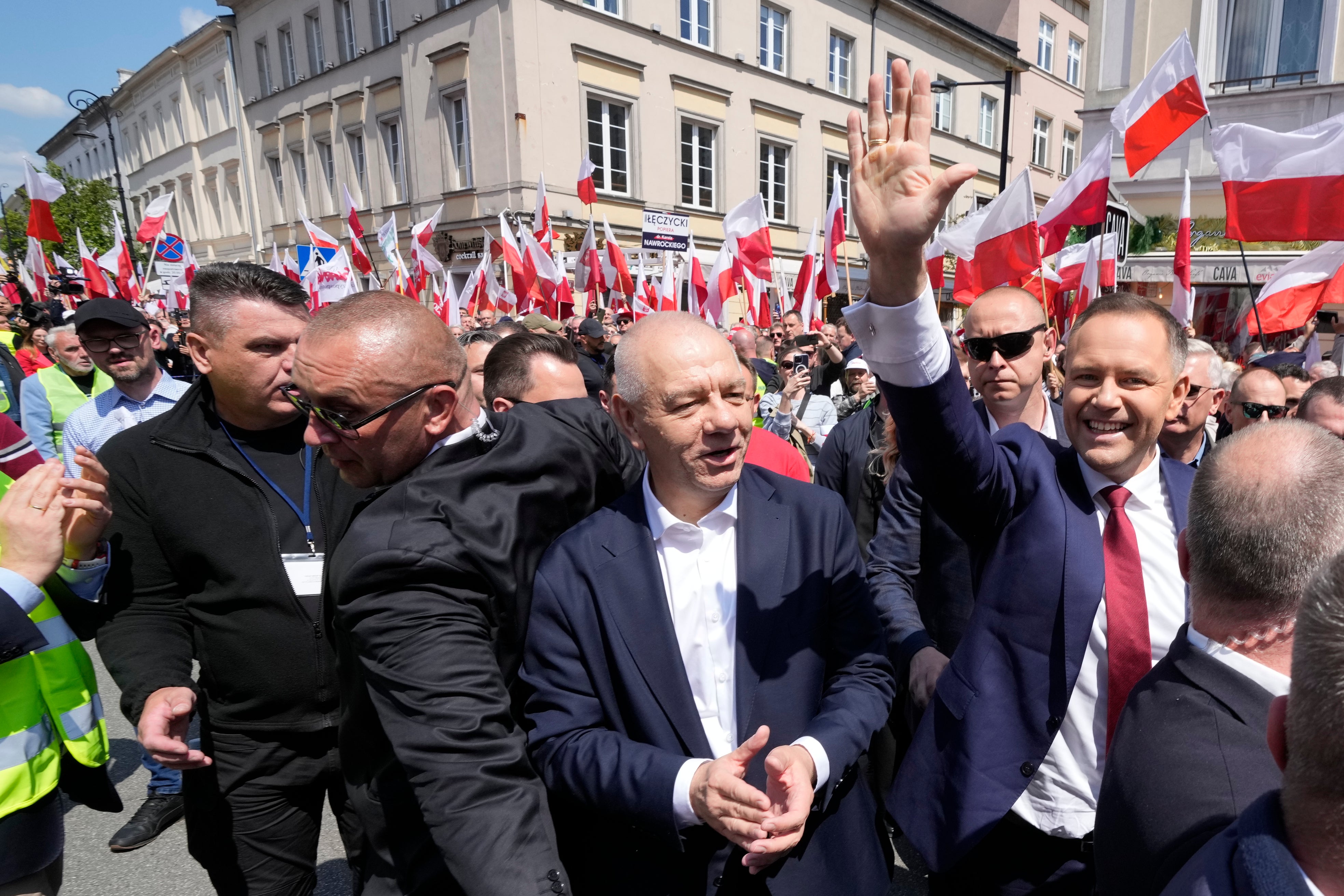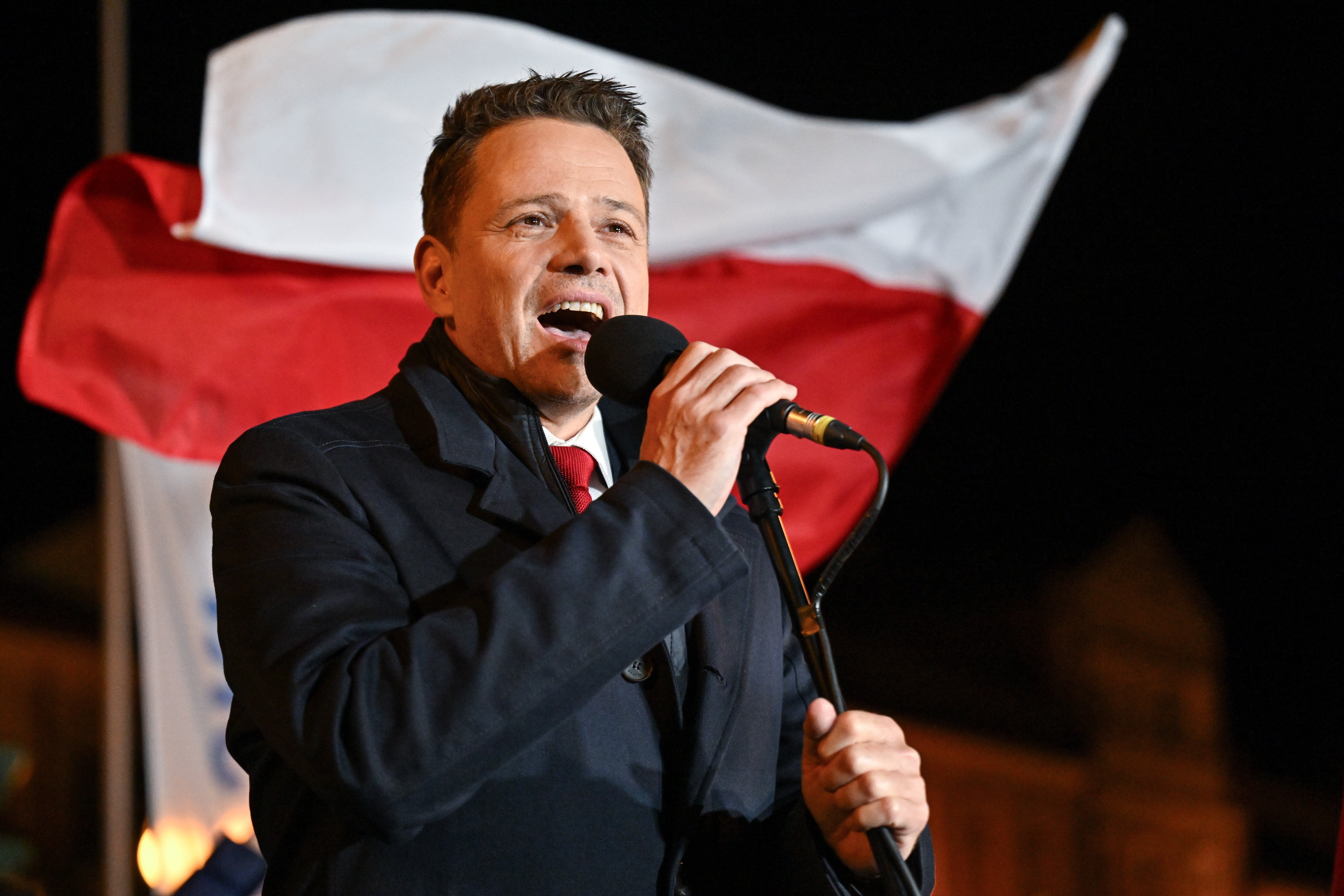Karol Nawrocki, a conservative historian backed by Donald Trump, has won Poland’s tightly fought presidential election against centrist candidate Rafal Trzaskowski.
Polish voters cast their ballots on Sunday in a tightly fought race, the result of which was expected to shape the country’s political future and its relations with the EU.
Mr Nawrocki, 42, a Eurosceptic nationalist, won 50.89 per cent of the votes cast while Mr Trzaskowski, a liberal Warsaw mayor, won 49.11 per cent after the final count, according to Onet.
Mr Nawrocki, a historian and amateur boxer who ran a national remembrance institute, campaigned on a promise to ensure economic and social policies favouring Poles over other nationalities, including refugees from neighbouring Ukraine.
Overnight projections after the polling showed Mr Nawrocki leading Mr Trzaskowski by a fraction of a percentage point.
However, the race was too close to call as two of the three exit polls showed Mr Trzaskowski leading ahead of Mr Nawrocki.

As votes were still being counted, a set of preliminary results combining exit polls and counted ballots at 1am local time on Monday showed Mr Nawrocki ahead with 50.7 per cent of the vote over Trzaskowski with 49.3 per cent.
Locked in a near-dead heat, both candidates claimed victory in meetings with their supporters in Warsaw before the result was out.
“We won,” Mr Trzaskowski told his supporters. “This is truly a special moment in Poland’s history. I am convinced that it will allow us to move forward and focus on the future. I will be your president.”
Mr Nawrocki, speaking to his supporters at a separate event in Warsaw, said he believed he was on track for victory. “We’ll win and save Poland,” he said. “We must win tonight.”
A victory for Mr Trzaskowski, a liberal pro-EU politician, was set to strengthen prime minister Donald Tusk’s pro-European agenda and help curb the rise of the far-right across Europe.

In contrast, Mr Nawrocki’s win was expected to threaten the stability of Mr Tusk’s coalition and deepen rifts between Poland and its EU neighbours.
Mr Nawrocki, 42, aligned with US conservatives, including US president Trump, was backed by the right-wing Law and Justice party.
Last month, Mr Trump invited Mr Nawrocki to the Oval office and US homeland security secretary Kristi Noem had urged Poles to elect him, saying he had the capability of working together with Mr Trump.
“He needs to be the next president of Poland,” Ms Noem said.
While the Polish presidency is largely ceremonial with limited sway over foreign policy and defence, the president enjoys veto power over legislation – a significant check on prime minister Tusk’s pro-EU coalition which lacks the parliamentary majority needed to override it.
The vote on Sunday was a runoff between the two highest vote winners in the first round of the election on 18 May when Mr Trzaskowski held a lead, but marginally.
Mr Trzaskowski had won just over 31 per cent and Mr Nawrocki nearly 30 per cent, eliminating 11 other candidates.

From 2015 to 2023, Poland was ruled by the nationalist Law and Justice party, which curbed abortion rights and expanded state control over the media.
Though a centrist coalition led by Mr Tusk came to power in 2023, president Andrzej Duda – a conservative ally of Law and Justice – remained in office, enabling him to block much of Tusk’s agenda.
Mr Duda’s term ends this summer and the race to succeed him is widely seen as a referendum on Mr Tusk, whose popularity is waning amid challenges in pushing through key reforms.
The election attracted widespread international attention as it was being held in Ukraine’s neighbourhood where Russia’s war raised security fears.
While candidates support aid to Kyiv, Mr Nawrocki opposes Nato membership for Ukraine while Mr Trzaskowski supports it in the future.
Mr Nawrocki’s campaign drew on themes popular among the American right, particularly a focus on traditional values. His supporters fear Mr Trzaskowski’s pro-EU position could cede too much control over Polish affairs to European powers like France and Germany.
Many European centrists had rallied behind Mr Trzaskowski, viewing him as a defender of democratic values at a time when they were under threat from rising authoritarianism worldwide.




